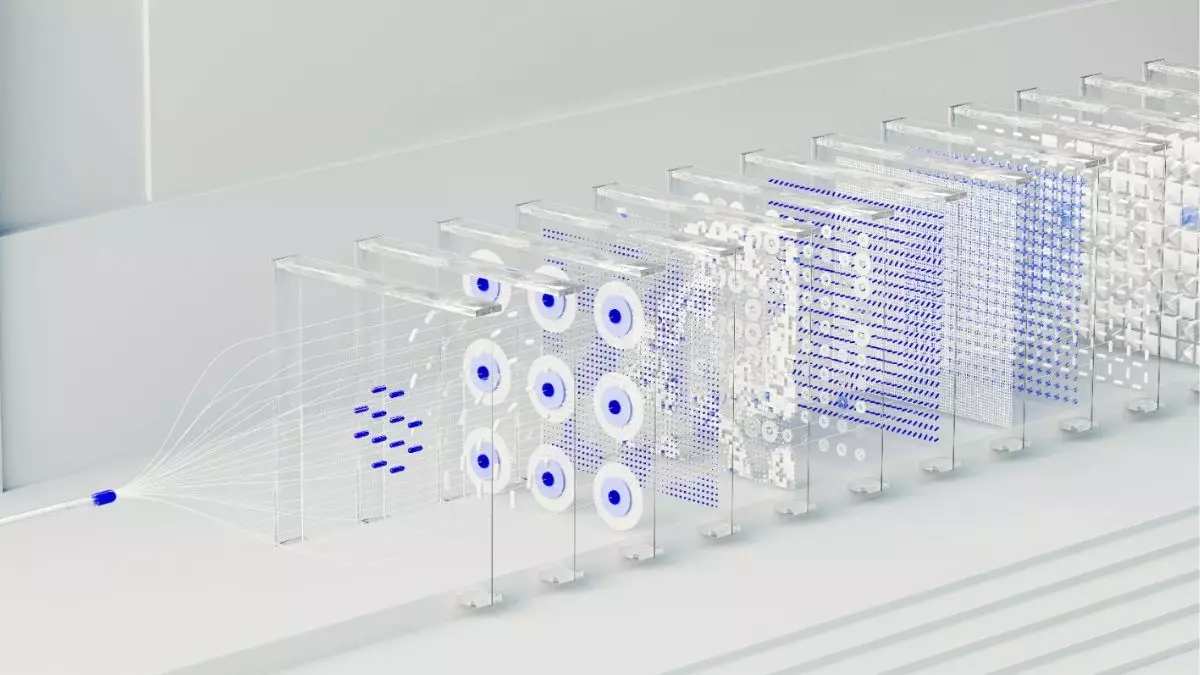In the rapidly advancing intersection of technology and science, Tetsuwan Scientific is poised to transform the landscape of research and experimentation. Founded in 2023 and based in San Francisco, this groundbreaking startup emerged from stealth mode in November following an impressive seed funding round. The vision of the company’s co-founders, CEO Cristian Ponce and CTO Théo Schäfer, is ambitious: to develop artificial intelligence (AI) robotics that closely mimic the roles of actual scientists.
From Concept to Reality: The Need for Intelligent Automation in Labs
Despite the growing sophistication of robotic automation in laboratories—a tendency that has primarily revolved around high-volume experiments—there remains a dire need for systems that can handle high-variety experimentation. Current lab robotics primarily function as assembly-line machines, demanding intricate programming for each specific protocol. This has stymied the potential for robotics to act as genuine scientific assistants. Tetsuwan Scientific identifies this gap as a significant hurdle: existing robotic systems lack the ability to grasp the scientific intent behind the tasks they perform.
This communication barrier has historically limited the autonomy of lab robots, confining them to rigid scripts that can’t adapt to novel scenarios or unexpected results. Tetsuwan aims to tackle this two-fold problem: creating intelligent software that can process scientific intent while integrating it with versatile hardware.
A pivotal strategy for Tetsuwan Scientific lies in its use of large language models (LLMs). These advanced AI frameworks enable more natural and intuitive communication pathways, allowing developers to convey complex scientific concepts to robotic systems without needing to write extensive lines of code. The integration of LLMs could be revolutionary—potentially permitting robots to autonomously plan and modify experiments based on initial hypotheses without continuous human oversight. This capability signifies a leap beyond mere automation, heralding an era where robots could actively contribute to scientific discovery.
Moreover, Tetsuwan is employing a Retrieval-Augmented Generation (RAG) framework that aims to mitigate issues associated with AI hallucinations—when AI systems generate misleading or fabricated information. This crucial step will bolster the reliability of the robotic autonomous workflows that Tetsuwan aspires to establish.
In an era where humankind increasingly relies on mechanized support, Tetsuwan Scientific adopts a novel approach to robotic design. Instead of creating humanoid robots, the startup’s prototypes showcase large, square, glass-like structures. These intriguing designs are not only aesthetically compelling but also serve functional purposes; they are equipped with advanced AI technology and sensors capable of understanding and adhering to technical standards needed in scientific experimentation, including aspects like calibration and liquid classification.
The robots are designed to evaluate experimental results and make adjustments autonomously. This independence is crucial for a future where such machines could trailblaze in scientific innovation, unfettered by traditional constraints. Currently collaborating with La Jolla Labs on RNA therapeutic drug development, Tetsuwan is solidifying its position in the biotech arena while striving toward its ultimate goal: crafting independent robotic AI scientists.
With the potential to automate the entire scientific discovery process—from hypothesis generation to experimental execution and analysis—Tetsuwan Scientific’s vision is inspiring and ambitious. While the technology is still in its infancy, the implications are far-reaching. Should the initiative succeed, it could revolutionize fields ranging from pharmaceuticals to environmental science, drastically speeding up the pace of discovery and allowing human scientists to focus on higher-level strategic decisions rather than mundane experimental protocols.
Ultimately, if Tetsuwan can navigate the complexities of merging intelligent software with advanced robotics, it could redefine the scientific process itself. As AI continues to seep into various industries, Tetsuwan Scientific stands at the forefront of a revolution that promises to augment human ingenuity, creating a collaborative future where humans and machines work side by side towards unprecedented discoveries.


Leave a Reply